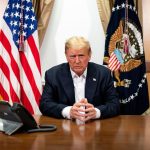Robert F. Kennedy Jr. has made his way to Capitol Hill, seeking approval as President Trump’s choice for Secretary of Health and Human Services. This political maneuver is stirring quite the pot as RFK and Trump attempt to dismantle worries that key vaccines, including those protecting against polio, might be in jeopardy if their partnership pans out. Commentary surrounding these meetings, particularly from Scott Jennings on CNN, is drawing attention to the dynamics at play in a post-COVID landscape, where trust in public health has been severely shaken.
During a segment, Jennings addressed the anxieties regarding potential changes to school vaccine mandates under Trump’s administration. He confidently reassured that the polio vaccine is safe and sound, asserting that there would be no interference with it. With substantial energy, Jennings proclaimed that the concerns surrounding the vaccine had been effectively addressed during the meeting. His comments reflect a growing demand for transparency and scientifically grounded decisions moving forward.
RFK JR: “Trusting the experts is not a feature of science. It’s not a feature of democracy. It’s a feature of religion and totalitarianism.”pic.twitter.com/t1cbbpea7T
— Chief Nerd (@TheChiefNerd) December 16, 2024
The conversation on science and public health took a sharp turn when Jennings suggested that science ought to revert back to being—well, just science. He humorously remarked that during the pandemic, the public’s perception had nearly veered into the territory of cult-like devotion to certain health figures. This tongue-in-cheek observation highlighted the absurdity of elevating scientifically questionable proclamations into a near-religious experience. It’s a clear reminder that while science should guide health policy, it should not become an object of blind faith.
In a contrasting viewpoint, another panelist questioned RFK’s qualifications, framing his commentary as less credible due to his lack of formal medical expertise. However, this appears rather hypocritical given the current head of HHS, Xavier Becerra, whose own qualifications are notably lacking in the medical realm. From attorney general of California to congressional representative, Becerra’s credentials in managing public health are more political than scientific. This inconsistency raises eyebrows regarding the standard for expertise in the Biden administration’s health policies.
As discussions shifted back to the fallout of COVID-19, Jennings reminded viewers of why skepticism towards health officials has gained traction. The pandemic forced many Americans to question the narratives put forth by those in power, fueled by revelations that much of what was accepted as gospel turned out to be nothing more than misshapen truths. Jennings argued that the widespread disruption to everyday life spurred by these misguided health decisions warrants an environment where questioning authority is not just acceptable but necessary.
Despite an atmosphere of debate, Jennings’ points resonated with viewers, particularly in light of prominent figures like Senator Rand Paul echoing his sentiments. Paul continues to champion inquiries into the way COVID was handled, vowing to hold accountable those who led the charge in promoting questionable health guidelines. With the future of public health policy hanging in the balance, RFK’s nomination represents a glimmer of hope for a return to an evidence-based approach, free from the previously monopolized ‘science’ mantra that defined recent years.




